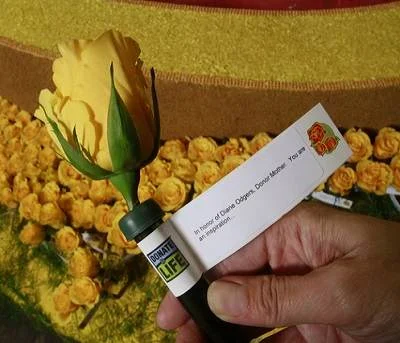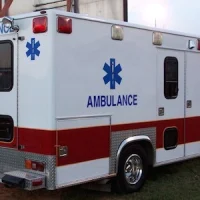To help ease an organ shortage crisis in the US, ethicists from NYU Langone Medical Center have suggested a simple and ethical change in policy that would greatly expand the nation’s organ pool while respecting autonomy, choice, and vulnerability of a deceased’s family or authorised caregiver.
Their proposed solution, which is described in an article published in JAMA's "Viewpoint" section, is similar to a policy in Europe, where unexpected deaths provide substantial numbers of transplantable organs. The “uncontrolled donation after circulatory determination of death” (UDCDD) approach considers the deceased candidates for donation even when death is unexpected and occurs outside a hospital, as long as preservation of organs begins after all life-sustaining efforts have been exhausted.
“To encourage donation through UDCDD, we propose an approach that would consider the decision-making capacity of grieving family members,” says NYU Langone's Arthur Caplan, PhD, professor in the Division of Medical Ethics in the Department of Population Health. “Rather than requesting full authorisation for donation of an organ immediately after the death of a loved one outside a hospital setting, a family would be asked only if they would like to preserve the deceased’s organs so that they might consider donation later.”
Current US policy promotes organ recovery from three sources: neurologic deaths, controlled circulatory deaths, and live donors for kidneys and partial liver transplantation. However, Prof. Caplan and co-authors of the JAMA article believe that the policy cannot meet increasing demand for transplants. Currently, more than 124,000 patients in the US are wait-listed for organs, a number that increases yearly despite attrition from 10,500 who die or become too sick for transplantations.
The proposed solution, the authors note, supports the aim of being sensitive to the specific needs of family members at a time of immense grief and overwhelming stress. “A decision to preserve organs is less complex and consequential than the decision to donate,” according to Prof. Caplan. At a later stage, the family would be asked to consider donation.
The importance of ‘decoupling’ pronouncement of death and requests for organ donation is well established, the authors write. In addition, they recommend that language be changed from “uncontrolled donation” to “permission to preserve” after an “unexpected” death.
As co-author Carolyn Plunkett, MA, a PhD candidate at City University of New York and a researcher in the Medical Ethics Division, explains: “With an appropriate ethical framework to obtain permission for preservation immediately following unexpected circulatory determination of death, and with the actual decision to authorise donation made hours thereafter, the pool of potential donors could be greatly expanded while respecting autonomy, choice, and vulnerability.”
Source: NYU Langone Medical Center
Image Credit: Flickr.com
Their proposed solution, which is described in an article published in JAMA's "Viewpoint" section, is similar to a policy in Europe, where unexpected deaths provide substantial numbers of transplantable organs. The “uncontrolled donation after circulatory determination of death” (UDCDD) approach considers the deceased candidates for donation even when death is unexpected and occurs outside a hospital, as long as preservation of organs begins after all life-sustaining efforts have been exhausted.
“To encourage donation through UDCDD, we propose an approach that would consider the decision-making capacity of grieving family members,” says NYU Langone's Arthur Caplan, PhD, professor in the Division of Medical Ethics in the Department of Population Health. “Rather than requesting full authorisation for donation of an organ immediately after the death of a loved one outside a hospital setting, a family would be asked only if they would like to preserve the deceased’s organs so that they might consider donation later.”
Current US policy promotes organ recovery from three sources: neurologic deaths, controlled circulatory deaths, and live donors for kidneys and partial liver transplantation. However, Prof. Caplan and co-authors of the JAMA article believe that the policy cannot meet increasing demand for transplants. Currently, more than 124,000 patients in the US are wait-listed for organs, a number that increases yearly despite attrition from 10,500 who die or become too sick for transplantations.
The proposed solution, the authors note, supports the aim of being sensitive to the specific needs of family members at a time of immense grief and overwhelming stress. “A decision to preserve organs is less complex and consequential than the decision to donate,” according to Prof. Caplan. At a later stage, the family would be asked to consider donation.
The importance of ‘decoupling’ pronouncement of death and requests for organ donation is well established, the authors write. In addition, they recommend that language be changed from “uncontrolled donation” to “permission to preserve” after an “unexpected” death.
As co-author Carolyn Plunkett, MA, a PhD candidate at City University of New York and a researcher in the Medical Ethics Division, explains: “With an appropriate ethical framework to obtain permission for preservation immediately following unexpected circulatory determination of death, and with the actual decision to authorise donation made hours thereafter, the pool of potential donors could be greatly expanded while respecting autonomy, choice, and vulnerability.”
Source: NYU Langone Medical Center
Image Credit: Flickr.com
Latest Articles
healthmanagement, organ donation, organ donors, transplantation, ethics
Ethicists have suggested a simple and ethical change in US policy that would greatly expand the nation’s organ pool while respecting autonomy, choice, and vulnerability










